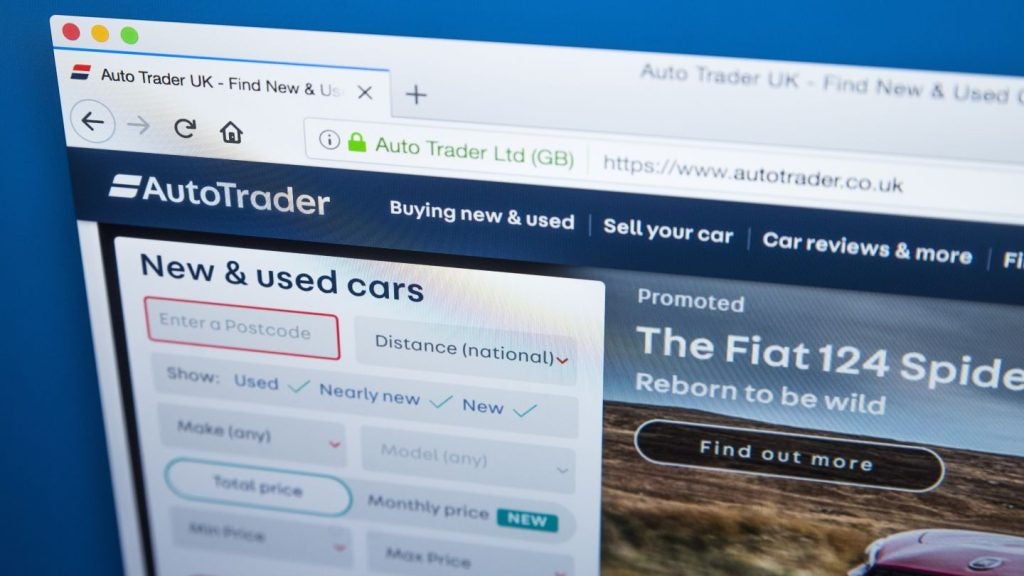
The cost-of-living crisis and the continued increase in interest rates has meant that the vast majority of Britons have had to find ways to cut back to make household incomes stretch.
But what about cars? In March 2023 Statistica found that 85% of us own a car. That’s only 15% of the British population who do not. It means the cost of acquiring and running a vehicle affects nearly all of us at some point in our lives. But as costs go up, is there a better way of having the vehicle we need, which protects us from any further interest rate hikes, and also protects us against the mounting costs of driving in our city centres?

US Tariffs are shifting - will you react or anticipate?
Don’t let policy changes catch you off guard. Stay proactive with real-time data and expert analysis.
By GlobalDataYou may well find your answer in leasing. Unlike Personal Contract Purchase (PCP), you’ll find that there is no APR directly payable on your monthly bill – this means an increase in interest rates does not directly affect how much you pay each month. Yes it will only impact the manufacturer eventually, and those costs might ultimately be passed on to the vehicle leasing company, but in the immediate term and for the duration of your lease you are protected.
Leasing also helps you roll several monthly costs into a single payment, like the inclusion of road tax in your monthly bill.
What percentage of their salary should motorists spend on a car?
Typically, finance experts recommend that consumers budget between 10% – 15% of their annual net income on car payments. This is of course subjective – car enthusiasts and those wanting something a little special may be willing to pay more than that for their transport, while those wanting a more basic model might spend significantly less.
Using an online salary calculator, based on a UK salary of £33,176, which means a net take-home monthly pay of £2,215.18 per month (after removing tax and national insurance) the sweet spot for a monthly car payment lies somewhere between £221.50 per month and £332.20 per month.
But with the cost of living on everyone’s mind, how much should motorists really be spending on their cars?
The numbers
Instead of a single average, the calculations below are for a range of salary bands. They include a range of gross annual salaries and how much people should be spending on a car payment on a monthly basis, based on the net take-home pay of their annual salary.
£25,000 per year (Budget: £175 to £262 per month)
On a salary of £25,000 per year, you still have options on the leasing front. For less than £200 per month – which is towards the 10% mark – a wide range of small hatchbacks is available. The Vauxhall Corsa, Hyundai i10 and Peugeot 208 are among the most popular.
However, there are some larger cars that slip into this segment too. You can lease a Nissan Juke for less than £200 per month, while the all-new GWM Ora Funky Cat also falls into this bracket. Even the Peugeot 2008 – a practical crossover – can be leased for less than £250 per month.
£30,000 per year (Budget: £204 to £305 per month)
In this bracket, you’ll find lots of the same cars that are a good bet for those earning less, but you’ll have a choice of more rental profiles. For example, there aren’t many cars for less than £200 per month that offer a one-month initial rental – but for between £250 and £300, you’ll be able to benefit from this.
Upping the budget naturally opens up your options on the car front too – family SUVs like the Nissan Qashqai and Kia Sportage fall into this price bracket, while electric vehicles such as the MG 4 are now available for around £250 per month, too.
£35,000 per year (Budget: £231 to £348 per month)
With a £35,000 annual salary, your options really start to open up, with models from more premium brands starting to filter down to an affordable price. The Volkswagen Golf, Volkswagen ID.3 and Audi A3 are all attainable at this level.
£40,000 per year (Budget: £260 - £390 per month)
More premium models are on offer once you hit a gross annual salary of £40,000. A raft of Volvos including the XC40 and V60, as well as larger German models like the Audi A4 and BMW 2 Series.
£45,000 per year (Budget: £289 - £433 per month)
With a budget of up to £433 per month, you’re entering the upper realms of what we can consider everyday cars, with some more exotic offerings including the all-new Alfa Romeo Tonale, Mazda MX-5 sports car, or perhaps something like an Audi Q3.
£50,000 per year (Budget: £316 - £475 per month)
More BMW models become available, with the likes of the 3 Series and 4 Series easily attainable within our 15% cap. If you’re after an SUV, perhaps something like an Audi Q5 or BMW X1 could fit the fill.
£55,000 per year (Budget: £341 - £511 per month)
For between £450 and £500 per month, you’ll find some of the newest and most desirable electric vehicles, such as the Hyundai Ioniq 6, BYD Atto 3 and Tesla Model Y.
£60,000 per year (Budget: £365 - £548 per month)
Mercedes lease rates have increased in recent years, and if you want a car featuring the iconic three-pointed star without spending more than 15% of your monthly take home pay, you’ll need to be earning £60,000 per year. The C Class and E Class saloons fall into this territory, while other options include the BMW i4 and Audi A6. In a nutshell – premium German saloons.
£65,000 per year (Budget: £389 - £584 per month)
You can afford seriously premium options in this bracket, such as Mercedes’ GLB crossover. For those wanting something a little more stand-out, how about a Lexus RX?
£70,000+ per year (Budget: £413 - £620 per month
The world’s pretty much your oyster once you have the ability to spend more than £600 per month. The largest and most luxurious models from manufacturers like Mercedes, Range Rover and Jaguar become available.
There’s also the sleek Audi A7 to consider, or perhaps a BMW 8 Series might be your go-to?








